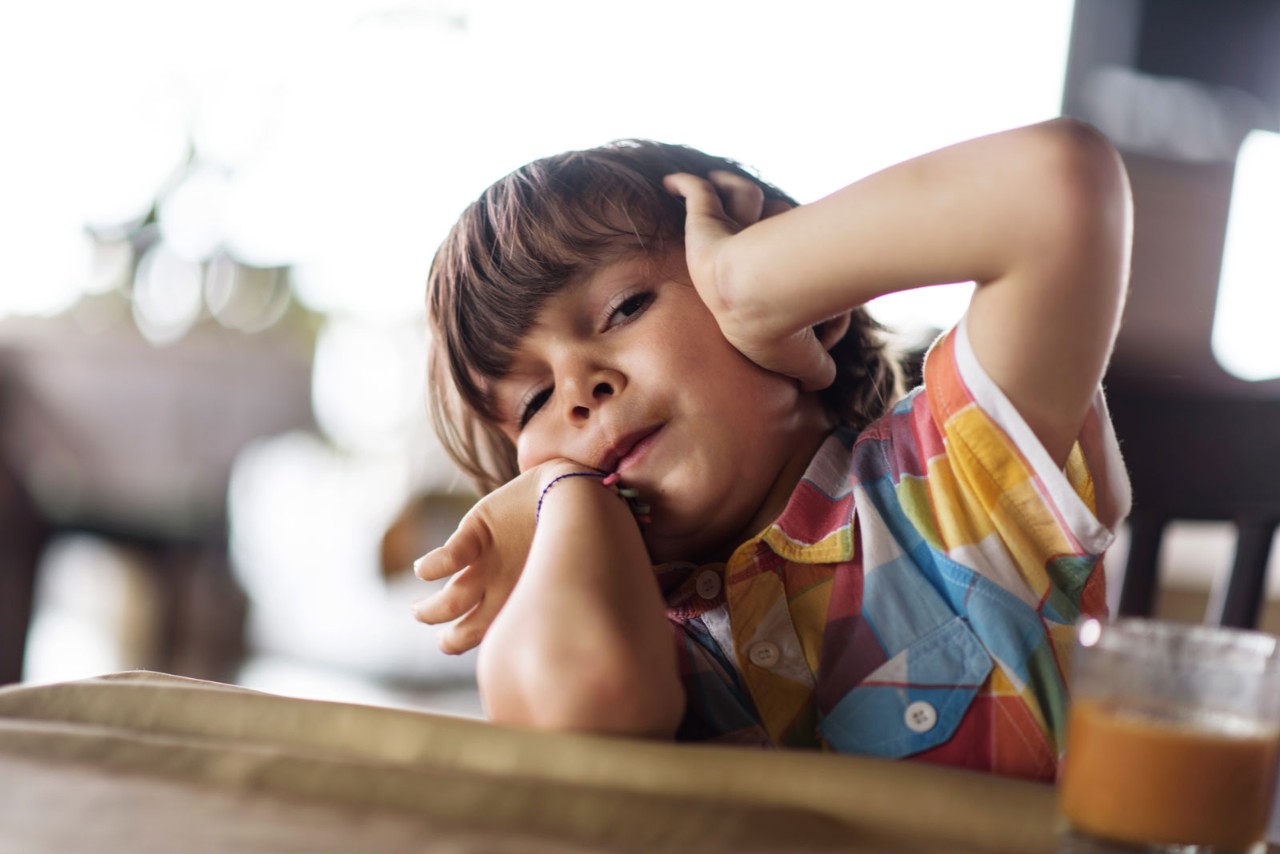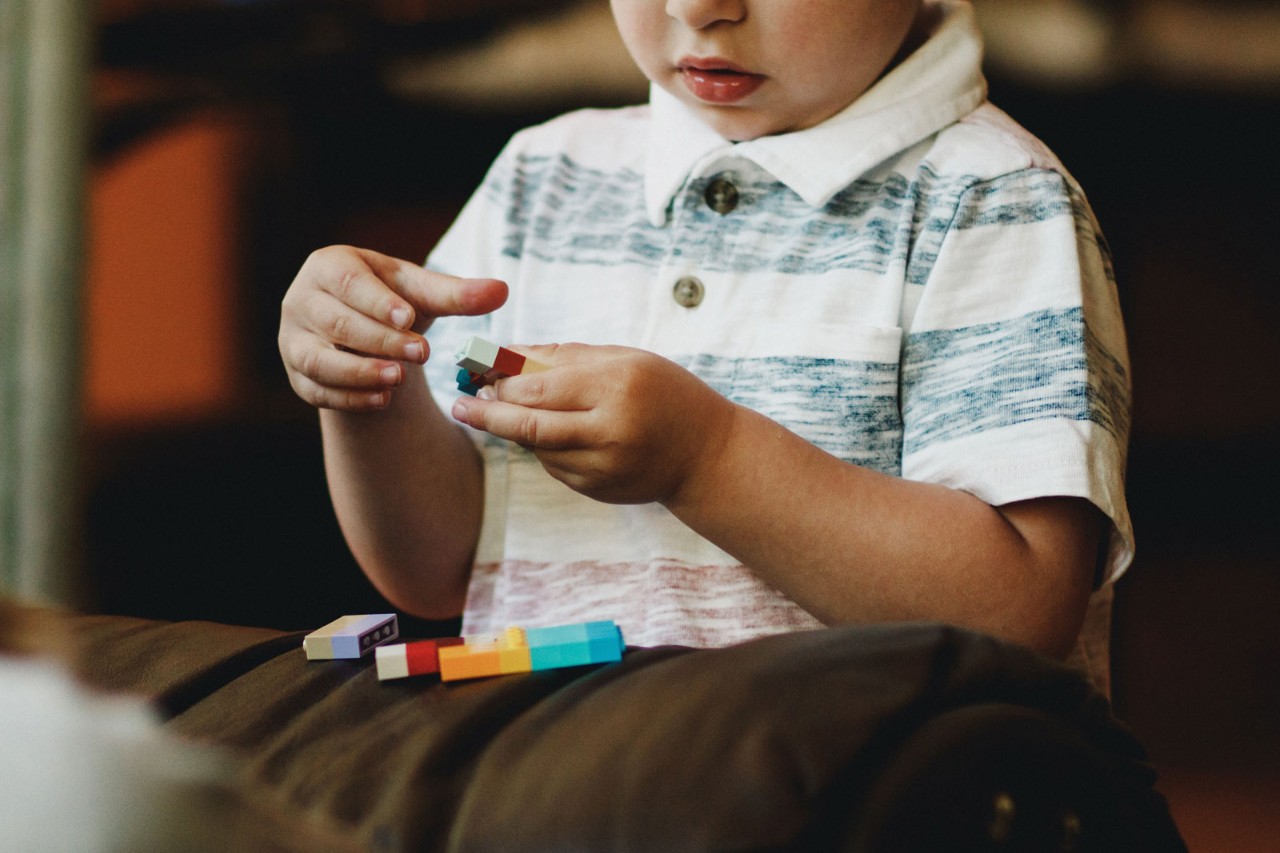Depression in children and young people
Mental health problems among children and adolescents have spiralled. How to recognise symptoms early and overcome emotional pain together as a family.

Never before have so many children and young people sought help from Pro Juventute’s 147 helpline as they do today: since 2019, calls about suicidal thoughts have increased by 82%, while calls about depression have risen by 61%. That means every day around nine people on average seek help over the phone for suicidal thoughts.
Moreover, one in ten young people is receiving professional psychological treatment, as shown by the data from the Youth Study that Pro Juventute conducted for the first time in 2024.
Experts are concerned by this situation. Especially given the fact that, since the pandemic, those affected often have to wait months or longer for an appointment with a psychiatrist or psychotherapist when they seek professional help.
That makes it all the more important that those affected and their parents learn how to recognise mental illness at an early stage and strengthen their own mental health.
“There are usually various factors [...] that put psychological strain on children and young people.”
Symptoms: How does depression manifest itself in children and adolescents?
The signs of depression can vary depending on the age group of those affected. Age notwithstanding, the symptoms sometimes differ greatly from one case to another.
-
Pre-school and school-age children
When depressive moods or depression occur in this age group, the child’s behaviour usually changes suddenly. Particularly sociable children often withdraw, while others react sadly, irritably or aggressively, sleep badly or have more trouble concentrating.
These symptoms are often accompanied by physical complaints such as stomach aches or headaches. Abdominal pain for no apparent physiological reason is particularly common in children, says Caroline Pulver, social scientist and head of the Pro Juventute counselling service in German-speaking Switzerland.
-
Adolescents going through puberty
A lot is happening among young people in this age group, both physically and emotionally. Their bodies are changing and hormonal changes are under way. Like younger children, adolescents show the following depression-related symptoms during puberty: withdrawal, disinterest, lack of motivation, listlessness, irritability and mood swings.
Headaches are a common physical symptom. Those affected sometimes also suffer abdominal pain, and either increased appetite or hardly any appetite at all.
Causes: How does depression develop in children?
“In most cases, depression arises as a result of various factors such as problems in their close surroundings as well as general anxiety and uncertainty about their own future, which put psychological strain on children and young people and can lead to depression,” says Caroline Pulver, social scientist and head of the Pro Juventute counselling service in German-speaking Switzerland.
In the counselling sessions at 147, Pulver and her colleagues gain an impression of what triggers these fears in children and teenagers. She says it’s both global social crises and personal everyday worries that cause anxiety among those affected.
-
Geopolitical events
The coronavirus pandemic was the first major crisis many young people had experienced. Although we survived it well, other crises such as the wars in Ukraine and the Middle East and the climate crisis have followed since then. “Events like these increase anxiety and psychological stress in children and young people because they’re going through a sensitive phase in their development,” says Pulver.
Geopolitical events like these are also ever present in the lives of children and young people nowadays due to digital media, and it’s becoming increasingly difficult to switch off from them.
-
Social pressure to perform
“In addition, those affected are increasingly suffering from greater pressure to perform due to the rising demands placed on them by society and school,” says the expert. According to the Pro Juventute Youth Study 2024, the most common stress factors include school and educational anxieties, followed by general pressure to perform, the feeling of not having enough money, high demands at school and future career prospects.
As various surveys show, adolescents and young adults (14 to 29-year-olds) nowadays experience stress, exhaustion, self-doubt and irritability much more frequently than those aged 50 to 69, for example.
Is it normal to be depressed during puberty?
In addition to anxiety and the pressure to perform, there are other factors during puberty that affect the mental well-being of those affected: for one, their hormones are on a rollercoaster ride due to their changing bodies. Their brains also undergo major changes during puberty. “A young person’s brain undergoes neuronal remodelling, which leads to frequent mood swings,” says Pulver.
-
Mood swings vs. depression
These anxieties are often accompanied by first love – and then the first heartache, problems at home with their parents, and difficulties at school. “With all of this going on, mood swings during puberty are completely normal to a certain extent and don’t immediately point to mental illness,” says Caroline Pulver.
However, it depends on how long they last and how much they suffer. “Each young person’s feelings and level of suffering are different. Some need professional support earlier than others, while others find their way through the psychological challenges of puberty without help.”
-
Girls are more frequently affected than boys
The Pro Juventute Youth Study also shows that young women tend to suffer from depressive symptoms more often than young men: among women, 36% of their age group, compared to 21% of men. Around a third of those surveyed have already received therapy.
Treatment: How to help a depressed child
Generally, the best way to help a child with depression is to recognise their mental health problems as early as possible. First and foremost, children and adolescents need to be made aware at an early stage that their mental state is part of their health.
And that – as with a broken leg or severe flu – specialists are available who can help with psychological pain such as depressive feelings or suicidal thoughts. “Young people suffering from depression need to know that they’re not alone with their problems and that there’s nothing wrong with feeling psychological pain,” says Pulver.
Easily accessible counselling services such as Pro Juventute’s 147 and parent counselling services as well as the child and adolescent psychiatric services offered at a cantonal level serve as the first point of contact in the search for professional help. They provide advice to the children and adolescents affected and their parents, regardless of how acute the current situation is.
-
What can parents with depressed children do?
Parents should definitely talk to their child if they realise that he or she is suffering mentally. They should create an environment in which the child feels comfortable to talk about difficult topics and difficult thoughts – an environment in which the child feels seen and heard.
The easiest thing for parents to do is to try to have a casual conversation while doing household chores such as washing up, or going for a walk. Parents should pay attention to their choice of words. Experts recommend speaking from a first-person perspective, for example by saying “I have the impression that you’re no longer enjoying your hobby as much.”
When parents talk to their children, it’s particularly important that they just listen first of all, says Pulver. That in itself already provides relief. “As a parent, also try not to trivialise or generalise your child’s problems. Take your child seriously.”
Specialist agencies such as Pro Juventute also recommend that parents seek help from specialists such as parent counsellors.
-
What can children and young people do themselves?
It’s important that the children and young people affected keep to their usual daily routine. “This provides support and prevents them from slipping even deeper into a downward spiral,” says Pulver.
Experts also recommend a balanced and healthy diet to strengthen mental health. There are a number of methods, such as mindful eating and individual foods that boost mental well-being.
An additional factor is recovery time in bed: sufficient sleep and regular bedtimes play a crucial role in strengthening mental health.
Finally, exercise also helps mental health. It doesn’t matter which form of exercise those suffering from depression choose – even a daily walk in the woods helps to reduce stress, calm the nervous system and improve the overall sense of well-being.
What should you do if your child has suicidal thoughts?
Parents should always take suicidal thoughts seriously. “Our experience of counselling shows that talking about the situation can go a long way to helping when somebody has these thoughts,” says Caroline Pulver.
Pulver advises parents to remain calm and not to panic. “Create a calm, trusting atmosphere in which it’s also possible to talk about difficult topics like this,” says Pulver.
Suicidal thoughts in a child are extremely upsetting for most parents. That’s why it’s important that parents get help themselves – for example from the parent counselling service in their canton of residence or through the telephone and online support provided by Pro Juventute.
Parents can find initial advice at the paediatrician or family doctor’s office. They also shouldn’t shy away from talking to their child's school if he or she is suffering from serious depression.
Pro Juventute, a Swiss organisation for the promotion of children and young people, offers help for children and young people under the number 147 or online at 147.ch and advises parents around the clock by phone, chat or email.
Parents can also contact the emergency hotline at elternnotruf.ch or call 0848 35 45 55 for support around the clock.
“Try [...] not to trivialise or generalise your child’s problems.”
How can depression in children be prevented?
It is very important that children and young people have experiences in which they learn that they can do things and resolve challenges by themselves. This teaches them agency, which is a key factor in improving their own resilience.
“The more experiences children have of taking agency, the more resilient they are in difficult situations,” says Pulver. It’s important that they have confidence in their ability to improve their situation and don’t feel that they’re at the mercy of their problems.
-
How to be more resilient
Children develop agency and resilience best in home environments where their parents encourage them an early age to try things out and solve problems for themselves.
That’s why it’s important that parents don’t try to remove all obstacles from their child’s path. “It’s crucial that children learn how to deal with challenges and find solutions themselves,” says Pulver.
This requires a home environment in which the child is allowed to make mistakes – and understands that we only learn from making mistakes. “We need an open error culture, especially in the family,” emphasises Pulver.
-
Set a good example
Pulver also points out that parents should show interest in their child – even if time is often hard to find in everyday life between juggling work, household and their own problems.
“This is the best way to ensure that your child comes to you when they’re not feeling well,” says Pulver. It’s important to have an atmosphere of openness in your home, where children and young people learn that they can talk about anything and that there are no taboo subjects.



